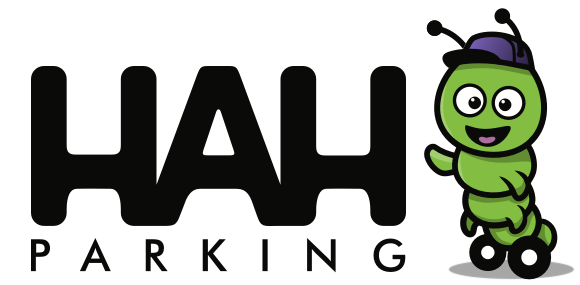Our Mission
Solve parking errors to save everyone time, money and resources
The Problem
$96 billion is WASTED every year in the USA due to parking errors
Modern parking operations are full of errors and costly inefficiencies resulting in wasted time, money, labor and resources. In the USA alone, inefficiencies cause $96 billion of annual waste. $73 billion is attributed to searching for parking, $20 billion is lost overpaying and $3 billion is spent on parking fines.
Americans are losing valuable time that could be avoided with a new model of parking powered by cloud technology, designed for efficiency, operated with high quality software and service. Drivers spend approximately 44 hours per year searching for parking, causing traffic that could be avoided. Studies show that 30% of urban congestion is attributed to vehicles circling in search for parking. This equates to about 930 million gallons of gasoline and 19 billion pounds of carbon dioxide emissions annually.
Currently there are 8 spaces for every 1 vehicle in the USA yet even with ample space, 50% of urban parking assets don’t reach capacity. The problem is not the lack of available space but rather inefficient management and outdated technology. Traditional parking infrastructure such as parking meters, kiosks and gates are analog, slow and full of errors. Errors result in waste.
HAH is on a mission to reduce waste caused by parking errors with all-in-one parking software and service. HAH connects parking spaces to paying customers. Currently available in the United States of America with plans for international expansion. HAH is preserving land on Earth at scale, one parking space at a time.
The Solution
HAH: A Zero Waste Parking System
Abstract
A zero waste parking system would eliminate wasted time, money, labor and resources consumed for parking infrastructure and operations. HAH proposes a solution to the global parking waste problem using technology, innovation and a peer-to-peer community guided by artificial intelligence until automation is achieved. The community will scale waste reducing parking systems worldwide and the software will be updated in real time from live human and artificial feedback. As errors are solved they are removed from the system to increase speed of scale. The goal is a sustainable input/output ratio.
Function
Time + Money+ Labor + Resources input ≤ 1% Time + Money + Labor + Resources output
Speed of scaling sustainable parking systems depends on political, social, economical and technological influence. Smart cities are paving the way for smart solutions with pilot programs and progressive action for policy transformation. The parking industry demands a sustainable model that can operate at scale rapidly and replace error producing technology and operations. Time, money, labor and resources are wasted when errors occur which has a negative impact on people and the planet.
HAH technology is powered by math and science developing objective functions with output equal to or less than 1% global parking waste. A fast path to scale zero waste parking systems is using open protocols and incentives. Open protocols enable composability, where problems only need to be solved once. Once an error is solved the code can be public for contribution or forked for other users of the community to run parallel. The users can bridge or collaborate to exchange and compound value or scale separately. If the goal is zero parking waste then more users operating parallel toward sustainable parking is better if the output reduces total waste. Metcalfe’s Law, Gall’s Law, Zero Cost of Reproduction, Scale Economies and Network Effects are high impact in a decentralized model of parking. The analog model of parking supported by labor, capital and hardware is limited by physics and human error. Open models of parking leveraged by code and media are not restricted by their inputs and outputs and can scale nonlinearly.
Hardware requires natural resources to produce, time and labor to maintain and is bound by physical law. Parking gates, kiosks and meters were once essential for parking operations but in today’s modern age of technology the same functions of parking management, enforcement and payment can be done in the cloud faster, more reliably and with less time, money, labor and resources consumed. Parking hardware, labor and capital solve part of the problem but at an unsustainable cost. Achieving sustainable output is possible with a new model of parking leveraged by code, media, open protocols, incentives and peer-to-peer composition guided by artificial intelligence as a bridge to autonomous parking.
Transition from old models of parking requires transformation of policy, procedure and technology as cities evolve into smart cities. Smart cities use parking systems objectively for their sustainable function delivering the highest sustainable output with minimal subjective input resulting in error.
The old model of parking relied heavily on capital, labor and resources to operate and are limited to the Web 2 domain. The new model of parking based in the cloud, decentralized and leveraged by code, media and peer-to-peer networks is limitless and can scale non linearly in Web 2 and be boundless in Web 3.
Core Innovation
Technological
Political
Social
Economical
Core Variables
Time
Money
Labor
Resources
Key performance indication is the measurement of total global parking waste. Analytics companies like INRIX measure waste caused by transportation errors and the impact it has on people and the planet. HAH collects, analyzes and optimizes its own platform data from live market feedback and continues to expand collaboration with analytics companies for positive sum value.
The end game is parking automation which would require vehicles and spaces to be connected and communicate with precision. HAH is setting a new standard for sustainable parking and is scaling worldwide with a decentralized market for parking technology and service providers.
Learn More
The Solution to the Parking Waste Problem
Cities Are Seeing Positive Results After Appealing Parking Requirements
Dynamic Pricing is Modernizing the Parking Industry
